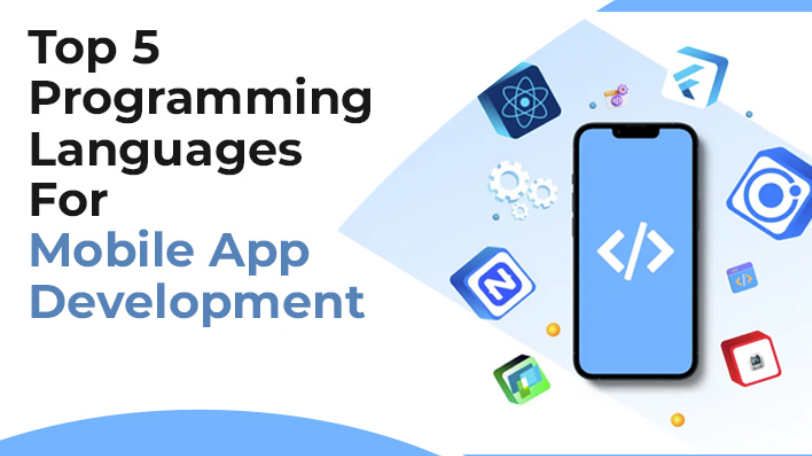Mobile app development has witnessed tremendous growth in recent years, driven by the ever-increasing use of smartphones and tablets. With a wide variety of platforms and devices, selecting the right programming language is crucial for developing efficient and user-friendly mobile applications. In this article, we'll explore the top 5 programming languages that have emerged as the industry standards for mobile app development.
1. Java: The All-Rounder
Java has been a cornerstone of Android app development for many years. It is an object-oriented, class-based, and platform-independent language that offers versatility and stability. Java's "write once, run anywhere" philosophy allows developers to create applications that work seamlessly on a wide range of Android devices.
Advantages of Java:
* Large developer community and abundant resources.
* Platform independence.
* Strong support for object-oriented programming.
* Excellent performance and reliability.
2. Swift: Apple's Gift to iOS
Swift is Apple's own programming language designed for iOS, macOS, watchOS, and tvOS app development. Swift offers a more modern and developer-friendly alternative to Objective-C, which was the primary language for iOS development before Swift's introduction. Swift is known for its readability and efficiency, making it easier for developers to write clean and maintainable code.
Advantages of Swift:
* Readable and concise syntax.
* Safety features to prevent common programming errors.
* Enhanced performance and reduced app load times.
* Full compatibility with existing Objective-C code.
3. Kotlin: A Booming Choice
Kotlin is often regarded as the "better Java" for Android app development. It's fully interoperable with Java, which means you can seamlessly use both languages within the same project. Kotlin offers a concise syntax, increased safety, and better code readability, making it a compelling choice for developers looking to enhance productivity and code quality.
Advantages of Kotlin:
* Enhanced readability and conciseness.
* Improved null safety to prevent null pointer exceptions.
* Interoperability with Java.
* Growing community support.
4. JavaScript: Versatility with React Native
JavaScript, primarily known as a web development language, has extended its reach into mobile app development through frameworks like React Native. React Native allows developers to create cross-platform mobile applications that can run on both iOS and Android. JavaScript's versatility and the ability to reuse code are its key advantages in the mobile development landscape.
Advantages of JavaScript with React Native:
* Code reusability for cross-platform development.
* A vast ecosystem of libraries and packages.
* Rapid development with a "learn once, write anywhere" approach.
* Strong community support.
5. C#: Powering Windows and Beyond
C# is a versatile programming language developed by Microsoft. It's mainly associated with Windows app development, but it has expanded its capabilities with Xamarin, which allows for cross-platform mobile app development. C# is known for its strong performance and extensive libraries, making it a solid choice for Windows, Android, and iOS app development.
Advantages of C#:
* High performance and efficiency.
* Integration with the .NET ecosystem.
* Support for cross-platform development through Xamarin.
* A strong foundation for game development with Unity.
Selecting the Right Language: Factors to Consider
Choosing the right programming language for mobile app development depends on various factors, including the platform, project requirements, developer expertise, and user experience goals. Here are some considerations to help you make an informed choice:
Platform: Consider the target platforms for your app. If you're developing for Android, Java and Kotlin are logical choices, while Swift is ideal for iOS.
Developer Expertise: Evaluate the skills and expertise of your development team. Using a language they are comfortable with can lead to more efficient development.
Project Requirements: Review the specific features and requirements of your app. Some languages may be better suited for particular functionalities or industries.
Budget: Consider your budget and the cost of development. Cross-platform development with languages like JavaScript can be more cost-effective.
User Experience: Think about the user experience you want to deliver. Different languages may offer advantages in terms of performance and user interface design.
Community and Support: The availability of a strong developer community and resources for troubleshooting and development can be crucial.
Future Compatibility: Assess the long-term compatibility and support for your chosen language to ensure it aligns with your app's future needs and updates.
Conclusion
The choice of programming language for mobile app development is a critical decision that impacts the success and performance of your application. Each of the top 5 languages mentioned—Java, Swift, Kotlin, JavaScript (with React Native), and C#—brings its own set of advantages and use cases.
Ultimately, the best programming language for your mobile app development project will depend on your specific requirements, your target platforms, and your development team's expertise. It's essential to carefully evaluate these factors to make an informed decision and create an app that meets your users' needs and expectations while remaining efficient and maintainable in the long run.





Leave a reply